On December 12, 2018, the Co-Founders of the Aurora Humanitarian Initiative announced the second laureate of Aurora Prize (2017) Tom Catena as Chair of the initiative.
Dr. Catena will be responsible for engaging key humanitarian stakeholders, working with global partners and overseeing Aurora’s educational and outreach projects, including the internationally recognised, Aurora Prize.
Dr. Catena was named as the Aurora Prize Laureate for his courageous work in the Nuba Mountains, where he has served more than half a million people as the sole surgeon at the Mother of Mercy Hospital, an organisation he co-founded.
Tom Catena visited Armenia in early December and talked to Mediamax.
What were your thoughts, when you got a call asking to chair Aurora?
First of all, I was very surprised. I said: “I don’t have administrative background, or work experience with a company, an organization”. I had just been doing medical activities and managing the investment coming after winning Aurora Prize, which is a very difficult job for me.
However, they started explaining me what my role would be and what I could do, and I thought that perhaps it could also be helpful in Sudan, where I work. So I agreed and decided that I would try to be available and do my best to help Aurora. I hope that I can use my job and my medical experience to move this work forward.
What are your goals in this new position?
A lot will be done with our team here in Armenia. My role at Aurora is being the “face” of the initiative, attending meetings, conferences, briefings and representing Aurora.
So I hope we can find ways of explaining what Aurora is doing.
What have Aurora and Aurora Prize changed in your life?
It was a significant help to our hospital. It helped us not only by providing money but also by the opportunity to tell people about Sudan, Nuba and about what goes on there. I’m happy that the money will go to the organizations I named, but the value of Aurora Prize is first of all drawing people’s attention to what is happening in Nuba Mountains of Sudan.
In your view, what can make Aurora prize more known in the world?
First of all, raising awareness and making people know what Aurora is about, its goals, how we can engage with the humanitarian community, the role we have and what we can do with founders.
It seems that the conflict in Sudan will never end, while you continue to live in Nuba without even thinking to move out. Why? Is it your hope or something else?
It’s a very difficult yet good question. Sometimes I’m very close to the point to say: “I can’t do this anymore”, but something always brings me back at the same moment. I think to myself: “No, wait a minute, that’s just how it is, that’s life.” This thought has always brought be back for two reasons.
First reason is my Christian belief that says that we are responsible to take care of poor people, and, as a Christian doctor, you have to take care of these people.
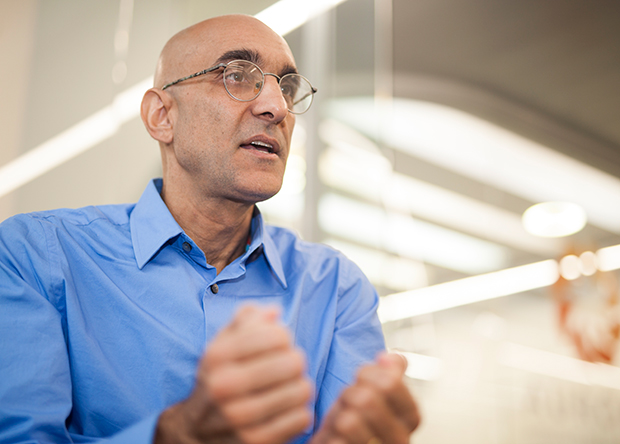 Tom Catena
Tom CatenaPhoto: Mediamax
The second reason is the people of Nuba. They are very strong, tough, they never give up. These people have suffered for so many years, but they keep going, and if they can keep going, I can do the same.
What’s the best advice you ever received?
Frankly speaking, you make me remember something… But the advice is being ready to follow your heart, what you feel inside, regardless of what happens in life.
Maybe you are doing a great job, and you are receiving a lot of money, but ask yourself about your passion, your love, and follow what you really love and follow what really makes you happy and grateful for life. All you need will come, if you follow your heart.
Right now I have the feeling that one day you understood all these things and started to follow your heart, changing everything in your life.
It’s hard to say. Maybe it was the day, when fight started in Nuba Mountains and my organization told me to leave Nuba. I said to myself: “Ok, who are you? What is your belief and what are you doing?” If I left back then, I would have told people that my life is more important than theirs and if I left, I would have left everything behind. I was the only doctor in Nuba at the time. I simply asked them to let me follow my hearth as a missionary, stay there, take care of people and do my best. I made the decision to stay.
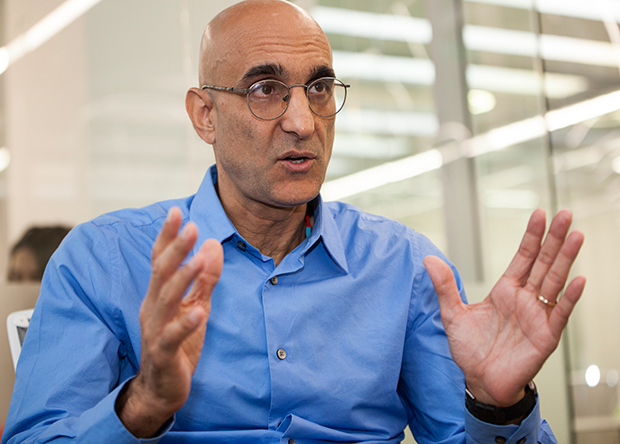 Tom Catena
Tom CatenaPhoto: Mediamax
That decision has given me courage and strengthened my faith in God and the fact that everything will be all right. It was the moment of truth for me that came in 2008.
Maybe we need more people like you in this world right now, what do you think? Or what we actually need in this world?
Maybe what we need isn’t something that is politically correct. I think that loss of religion made this world more secular, and in my opinion, it’s a big problem.
I am not here to force people, but as a missionary, I would like to encourage people to just think about it. Think about the world religion. What is the role of God in your life? Just consider it. If people really followed the teachings of Christ, they wouldn’t have had so many conflicts. We should take care of the poor disadvantaged people and greed will disappear.
Is there any change in the situation in Nuba?
We’re still in civil war, meaning that there’s no peace. Unfortunately, the negotiations aren’t productive yet, and there can be no solution. So I’m afraid that the fight can start again. On the other hand, I still hope that it doesn’t.
Could you mention the biggest needs in Mother of Mercy hospital right now?
The biggest need is money, we need a lot of money. We take care of 25 000 patients a year with 2 000 operations. So if we are comparing it with Armenian hospitals, it’s 25 times more expensive there.
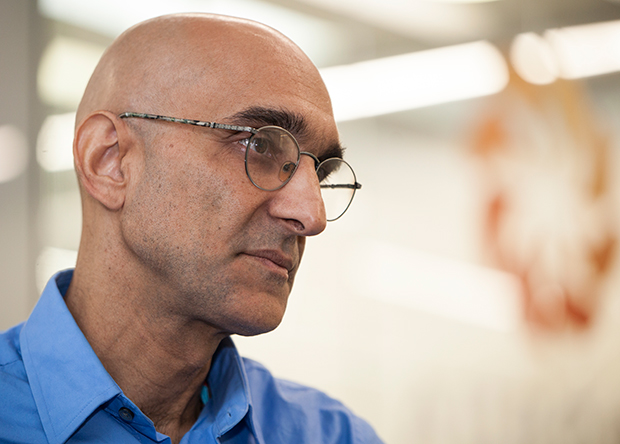 Tom Catena
Tom CatenaPhoto: Mediamax
We don’t have significant international donors. The government of Sudan is trying to destroy us, and we don’t have any support from them either, so everything depends on private donations to keep us going.
Your wife Nasima is from Nuba. What were her impressions of Armenia?
She feels very positive about Armenia, she really had great time here when we came for Aurora Prize ceremony in 2018.
She had never been out of Sudan before and the trip was an adventure for her. She was very happy to explore a different type of life.
I know that she has become a good friend of Armenian doctors who worked in Sudan in 2017, when you were here for the first time. Do you still communicate with them?
I really miss them and I hope to meet with Hayk, Armine and Gevorg to spend some time with them. They are amazing people and Nasima miss them very much.
This is your fourth visit to Armenia. Have you noticed changes here?
I have noticed a change of attitude in Armenia, and it seems more positive now. Everything seems more positive. Many people had negative outlook on the future, and now the situation has changed significantly.
Lusin Mkrtchyan talked to Tom Catena
Photos by Emin Aristakesyan
















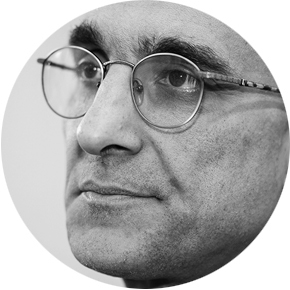
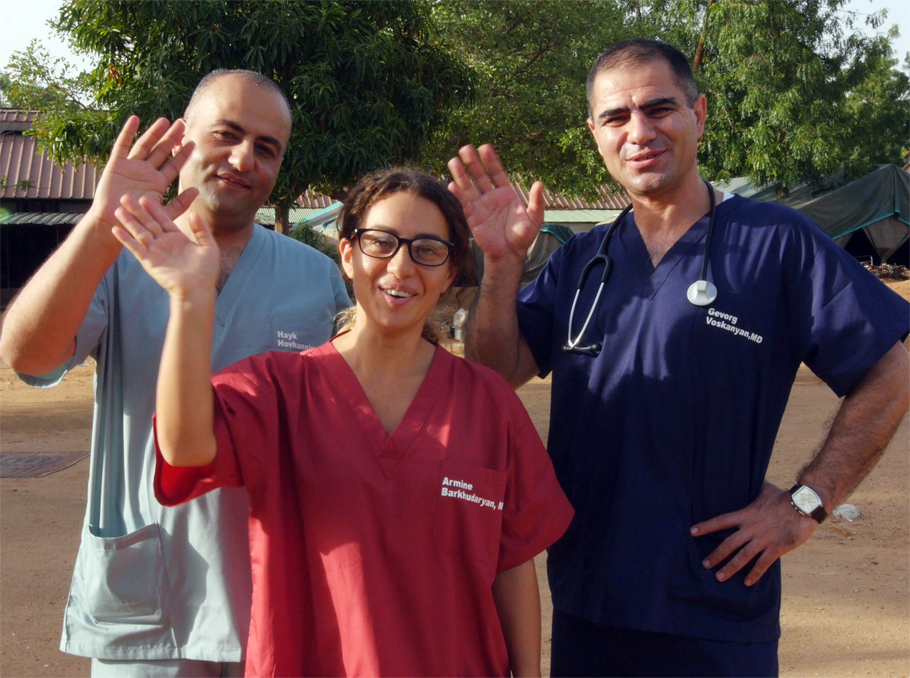



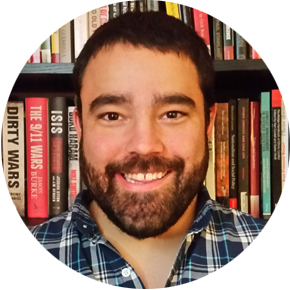






Comments
Dear visitors, You can place your opinion on the material using your Facebook account. Please, be polite and follow our simple rules: you are not allowed to make off - topic comments, place advertisements, use abusive and filthy language. The editorial staff reserves the right to moderate and delete comments in case of breach of the rules.